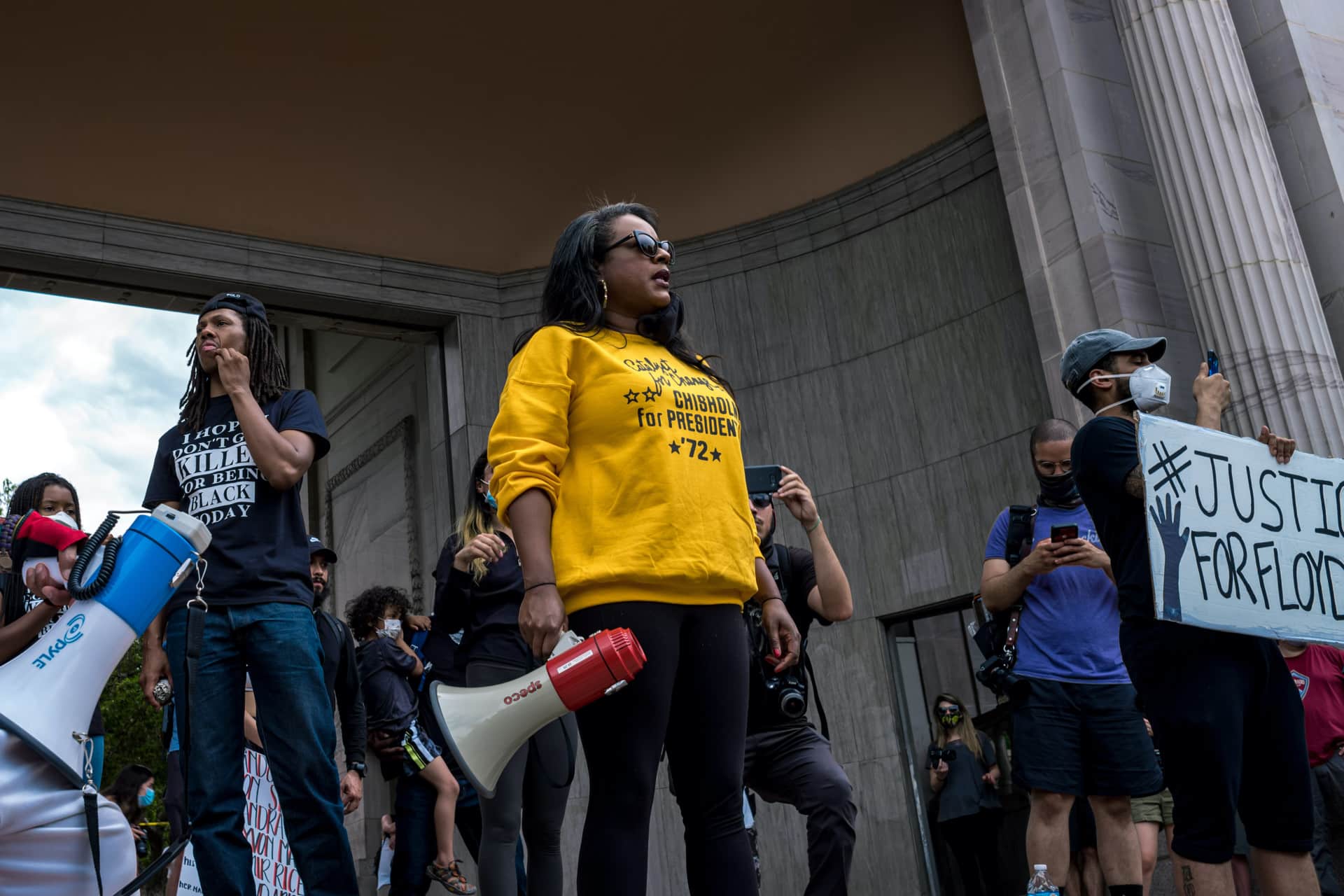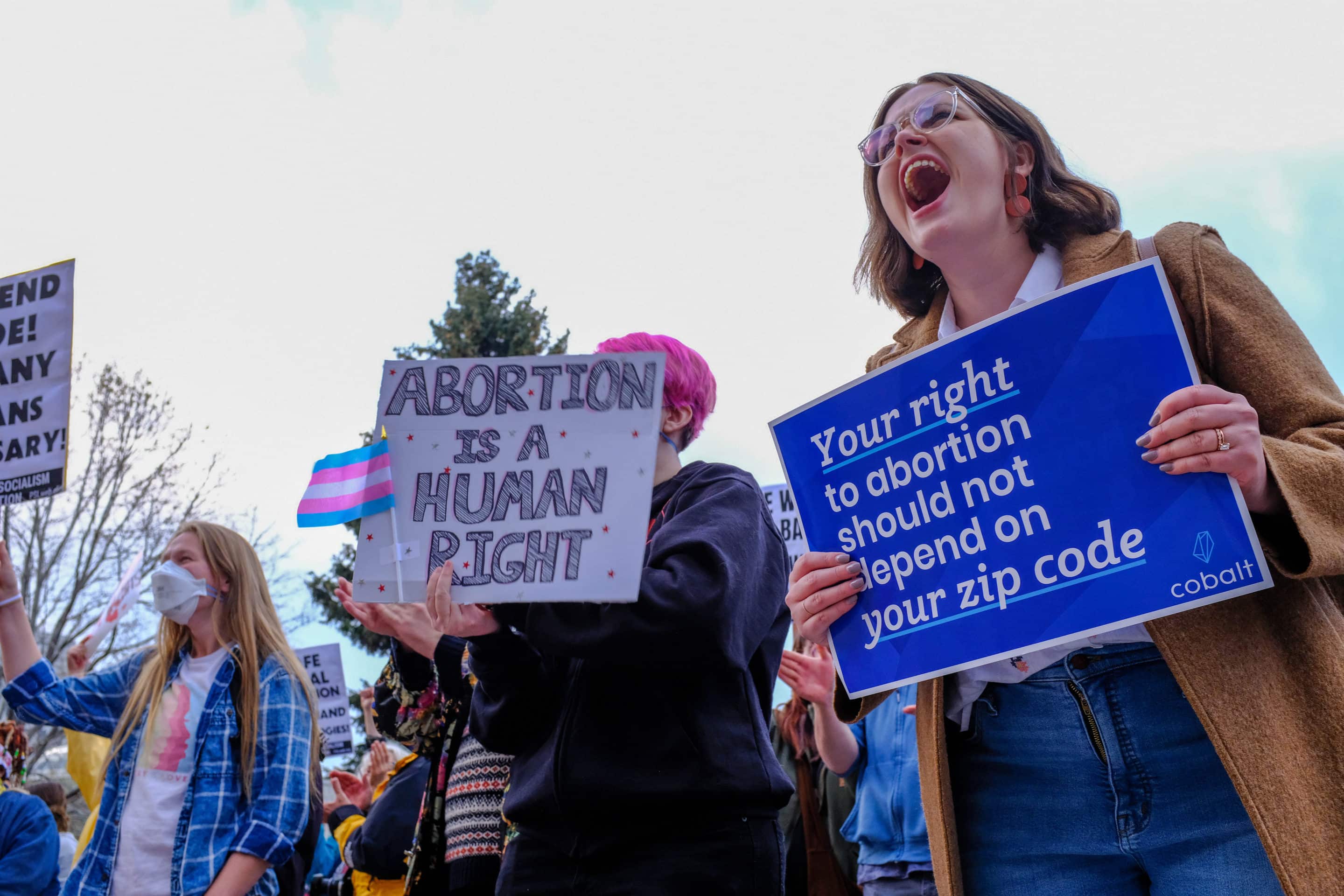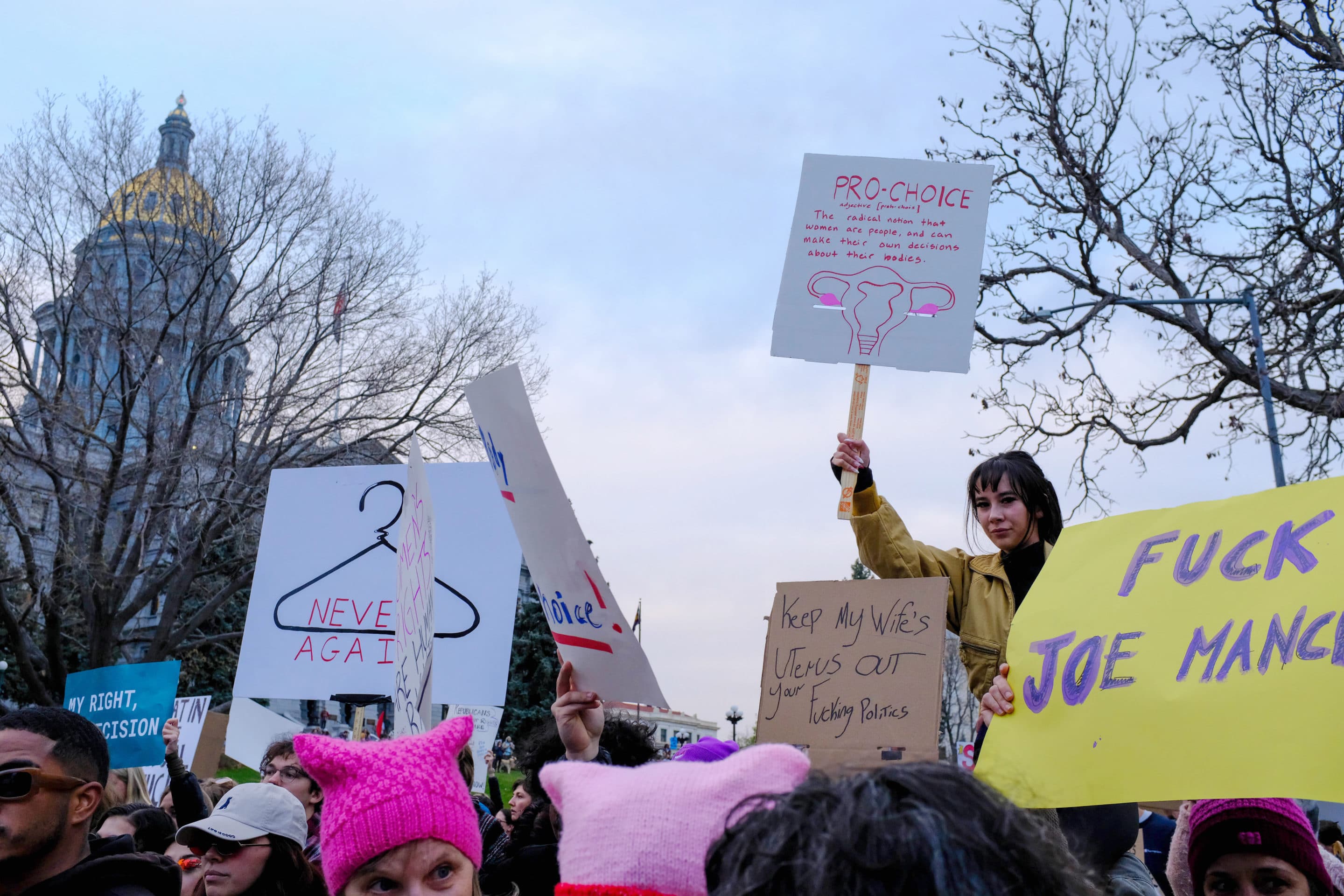//State Rep. Leslie Herod speaking at a George Floyd protest in Denver on May 31, 2020. Photo by Carl Payne | [email protected]
Denver City Councilor Candi CdeBaca and State Rep. Leslie Herod are no stranger to threats of violence. As women of color in positions of power, they have experienced several disturbing physical and verbal attacks during their tenures.
On an Instagram livestream Feb. 3, Herod hosted CdeBaca to discuss the insurrection in Washington, D.C. in January. The two elected officials broke their silence about the threats they’ve personally faced for the first time.
CdeBaca recounted an instance when her office received ricin, a highly deadly poison, in the mail. The incident resulted in an evacuation of the entire building in which her office was located. Herod has been moved from her home to secure locations multiple times throughout her time in office due to credible threats against her safety and life. Still, neither woman has received any additional security or support following these incidents, a trend that Herod points out is occurring across the nation.
“I’ve been talking with Black women elected [officials] all across the country and they are all having the same challenges,” Herod said. “Some aren’t even let into their own buildings of work. People that are supposed to protect them are making rude comments to them and not taking their concerns seriously.”
In a letter U.S. Rep. Alexandria Ocasio-Cortez wrote following the events at the Capitol, the representative from New York recounted her fear and inability to trust the Capitol police during the siege—a point that resonated with CdeBaca in particular.
“The fact that [Ocasio-Cortez] said she didn’t know if she could trust the Capitol police, I feel that every day here in Denver,” CdeBaca said, as Herod nodded in agreement. Both elected women felt frustrated with the Denver Police Department specifically, with Herod sharing that she could only trust a few members of law enforcement because others have been dismissive or have downplayed threats of violence against her.
“One of my white male colleagues was running a gun control bill and he got death threats,” Herod said. “When he got them, he was given protection. But when I get the same threats, I don’t get any of that.”
Other forms of harassment both women have experienced either while campaigning or in office included rape threats, stalking and doxing. CdeBaca described, for instance, how a doctored video of her invited death threats, compromising the safety of her hosting campaign rallies and harming her ability to directly engage with voters on an even footing with her opponents.
According to Herod, the omnipresent threat of violence against women of color in office, including those at the federal level such as Rep. Ilhan Omar of Minnesota and Rep. Rashida Tlaib of Michigan, feels like extra weight to carry while trying to do their jobs. It also harms their ability to do their jobs, as it disrupts their day-to-day tasks as well as the capacity to meet with constituents directly.
“I don’t want to be someone who has to always talk about experiencing something different because we’re women, or because we’re brown women or queer women,” CdeBaca said. “I’d like to stay focused on the policies.”
“We don’t want to be victims,” Herod added. “We want to focus on getting the job done.”
After the insurrection at the U.S. Capitol, Herod said some officials began to take her safety more seriously. But both women agreed that they felt more protected by their constituents than by the members of law enforcement who are assigned to them. Members of their community have, for example, escorted them to their vehicles after rallies.
Additionally, both pointed to the growing network of women of color elected to office as an important support system.
“AOC being honest about her experiences is helping all of us have these conversations right now,” CdeBaca said.
According to Herod, this type of dialogue between women of color in office is necessary to facilitate heightened awareness and, ultimately, change. They are lawmakers, after all. The two women hope that other women of color in office will also start being more vocal and put pressure on their colleagues and staff to take these threats of violence seriously.
“Our politics don’t always align,” Herod said to CdeBaca. “But what is the same for all of us are these direct attacks against women of color in office.”
We hope you enjoyed this article! Did you know you can support your local press for FREE by becoming a member? Subscribe today.





0 Comments